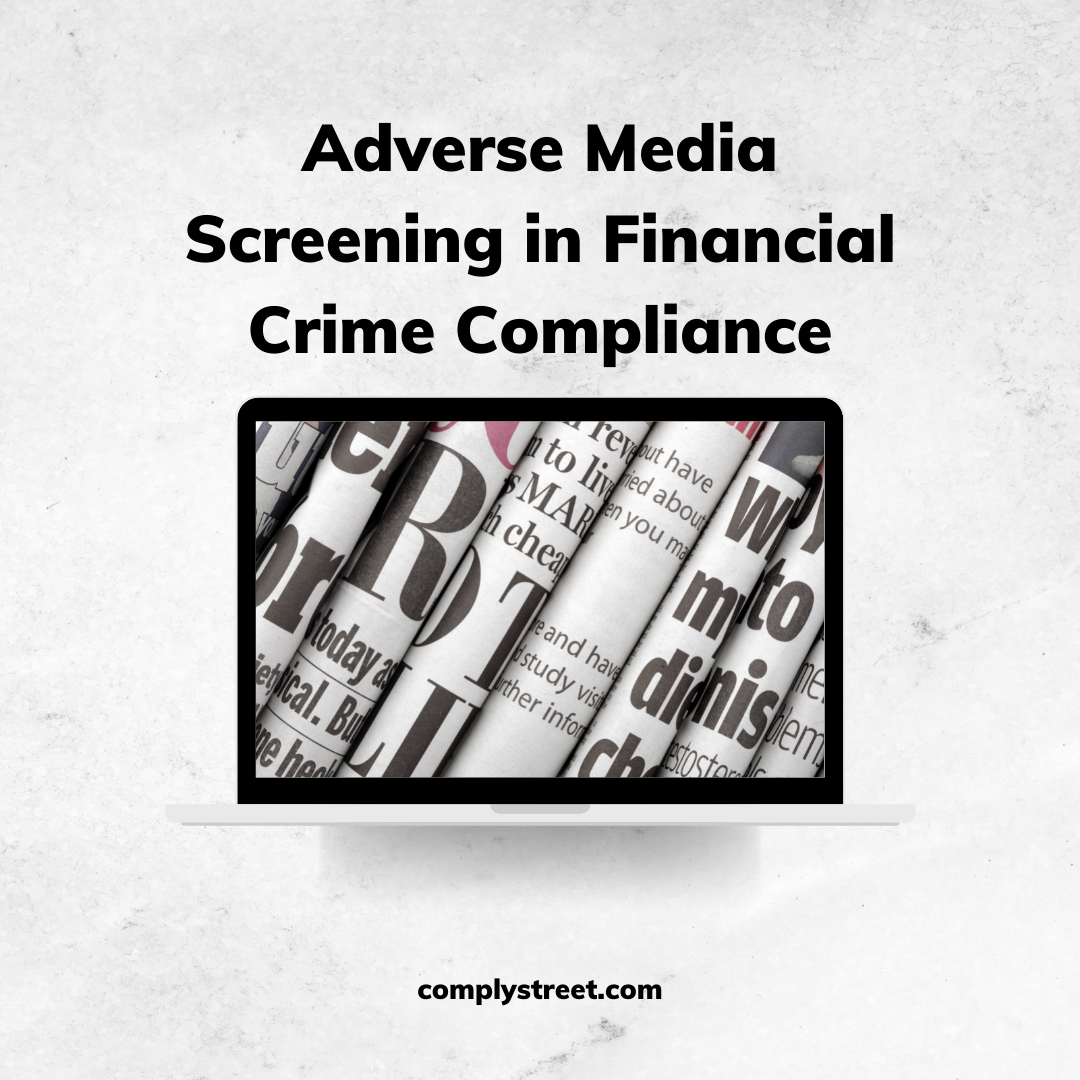
Adverse Media Screening in Financial Crime Compliance.
I am a huge believer in due diligence and one of the most important components involved in due diligence or KYC is adverse or negative media screening. Adverse media is any kind of negative or disadvantageous information found in news sources which could be traditional news outlets or those from unreliable sources. There are risks involved with conducting business with persons or companies having an adverse media profile. Collecting all details about a client, or a potential client, which includes any information about them is very essential so that the organisation and their compliance team can take a risk-based approach on the relationship with such client.
Any news regarding past criminal activity of an individual or organisation is one of the most common kinds of adverse media information. Suspicion of involvement in financial crime practices, sanctions list or evidence that the person or organisation was formerly detained for committing another crime, will give regulatory authorities more grounds to be suspicious about that individual or organisation. No past criminal activity or records or no association with people involved in such activities will ensure lesser risk for such clients. Nevertheless, it is important to verify the credibility, and the reliability of the source you are using in order to avoid the possibility of resorting to biased or fake news.
High-risk clients need to be monitored on an ongoing basis and with the latest developments in RegTech and AI, it is definitely much easier to do so. Adverse media screening is considered a significant aspect of anti-money laundering and financial crime compliance process adopted by the financial industry, especially since regulators all over the world are now imposing solid measures regarding the same. It has become an integral part of the onboarding, know your client (KYC) procedures, reporting and ongoing monitoring as part of a robust customer due diligence (CDD) system within any company or establishment.
KYC usually adopts a comprehensive approach towards screening their customers or clients and ensuring an adverse media screening for potential clients can benefit the company not just monetarily by avoiding any fines or warning but also helps build a positive reputation. A number of regulatory bodies from Financial Crimes Enforcement Network (USA) to European Commission (EU), Financial Conduct Authority (UK) and several others such as FATF recommendations, are enforcing uncompromising provisions on the same. This form of due diligence can help companies avoid or reject the customer, file an SAR, or the terminate the relationship with the client which leads to regulatory and reputational protection.
Please note that all opinions made on this blog should be treated as a guide and not legal advice.





